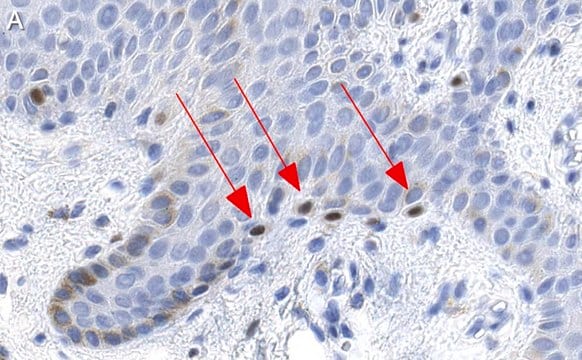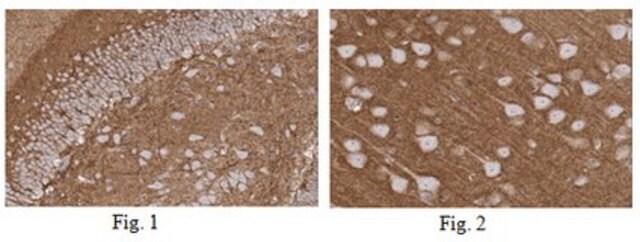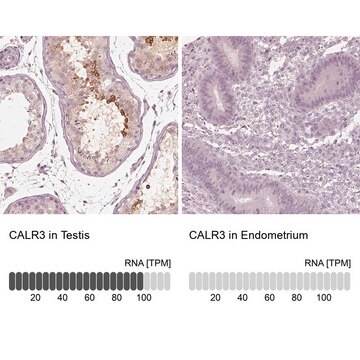ABN278
Anti-Prospero homeobox protein 1/PROX1 Antibody
from rabbit, purified by affinity chromatography
Synonyme(s) :
Prospero homeobox protein 1, Homeobox prospero-like protein PROX1, PROX-1
About This Item
Produits recommandés
Source biologique
rabbit
Niveau de qualité
Forme d'anticorps
affinity isolated antibody
Type de produit anticorps
primary antibodies
Clone
polyclonal
Produit purifié par
affinity chromatography
Espèces réactives
mouse, rat
Réactivité de l'espèce (prédite par homologie)
bovine (based on 100% sequence homology), fish (based on 100% sequence homology), chicken (based on 100% sequence homology), human (based on 100% sequence homology)
Technique(s)
immunohistochemistry: suitable
western blot: suitable
Numéro d'accès NCBI
Numéro d'accès UniProt
Conditions d'expédition
wet ice
Modification post-traductionnelle de la cible
unmodified
Informations sur le gène
mouse ... Prox1(19130)
Description générale
Immunogène
Application
Alexa Fluor™ is a registered trademark of Life Technologies, Inc.
Qualité
Western Blotting Analysis: A 1:500 dilution of this antibody detected Prospero homeobox protein 1/PROX1 in 10 µg of HEK293 nuclear extract.
Description de la cible
Liaison
Informations légales
Vous ne trouvez pas le bon produit ?
Essayez notre Outil de sélection de produits.
En option
Code de la classe de stockage
12 - Non Combustible Liquids
Classe de danger pour l'eau (WGK)
WGK 1
Point d'éclair (°F)
Not applicable
Point d'éclair (°C)
Not applicable
Certificats d'analyse (COA)
Recherchez un Certificats d'analyse (COA) en saisissant le numéro de lot du produit. Les numéros de lot figurent sur l'étiquette du produit après les mots "Lot" ou "Batch".
Déjà en possession de ce produit ?
Retrouvez la documentation relative aux produits que vous avez récemment achetés dans la Bibliothèque de documents.
Notre équipe de scientifiques dispose d'une expérience dans tous les secteurs de la recherche, notamment en sciences de la vie, science des matériaux, synthèse chimique, chromatographie, analyse et dans de nombreux autres domaines..
Contacter notre Service technique








